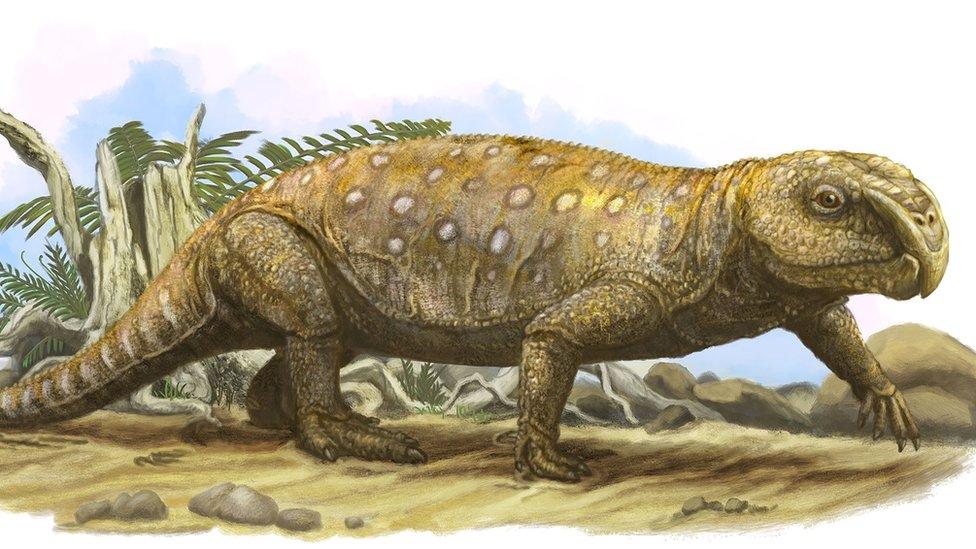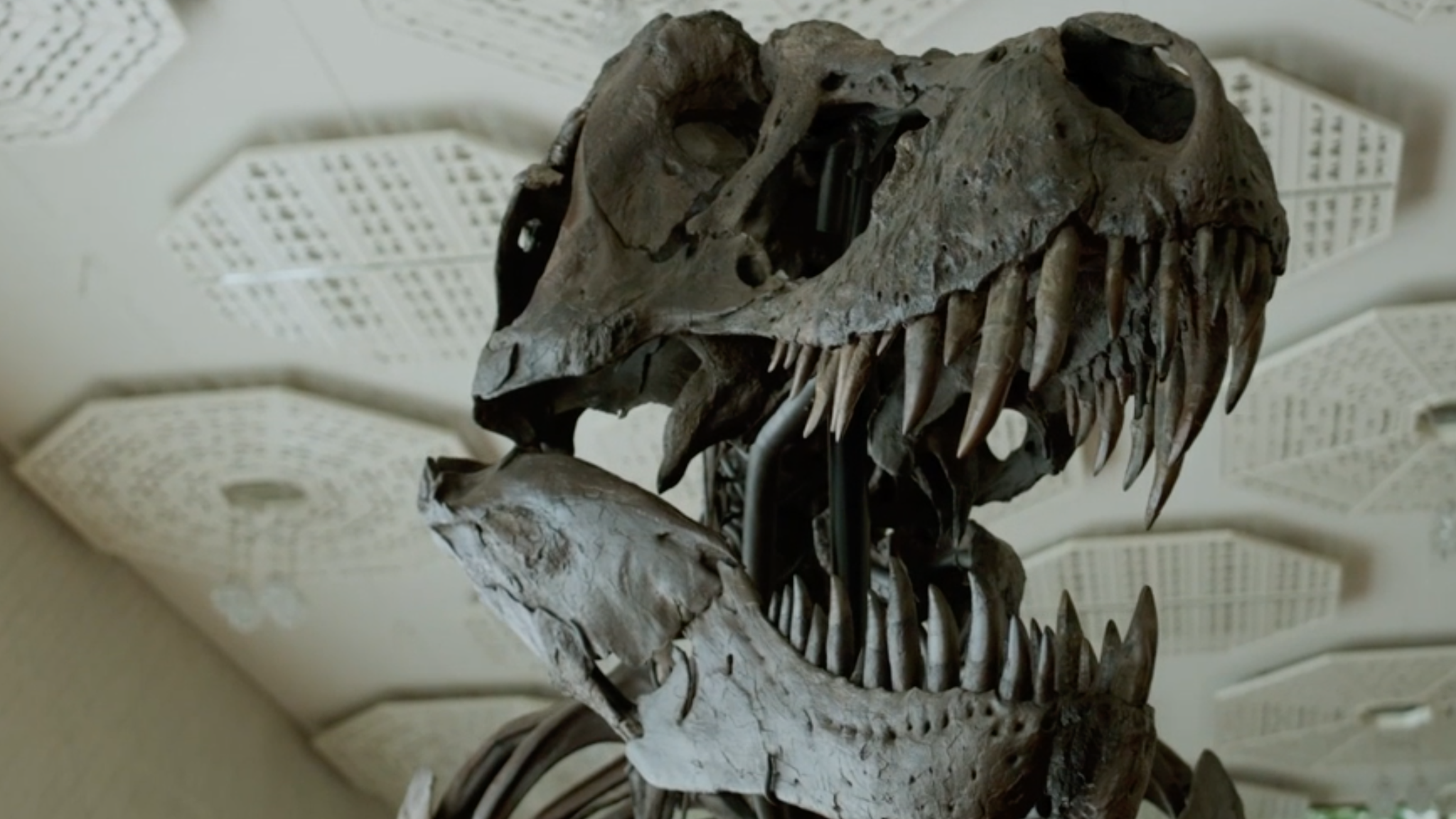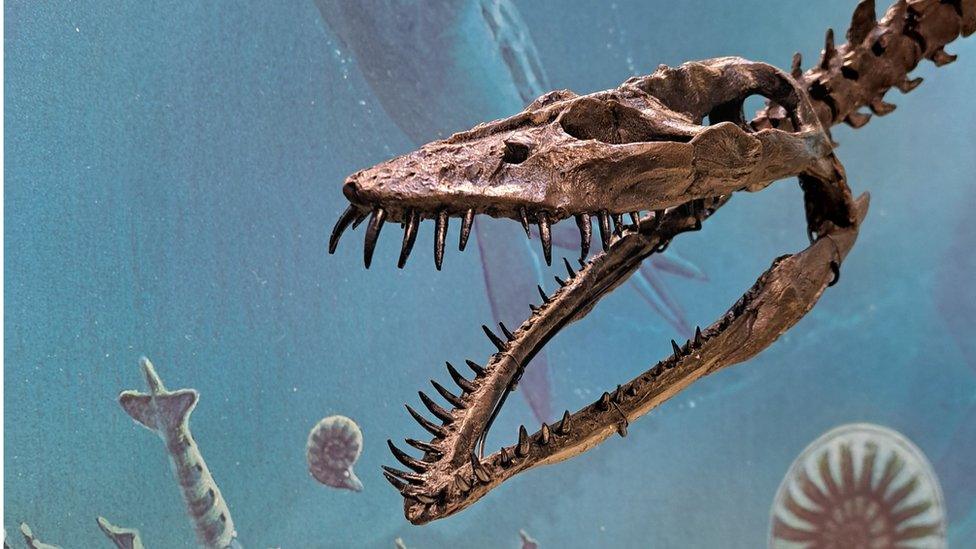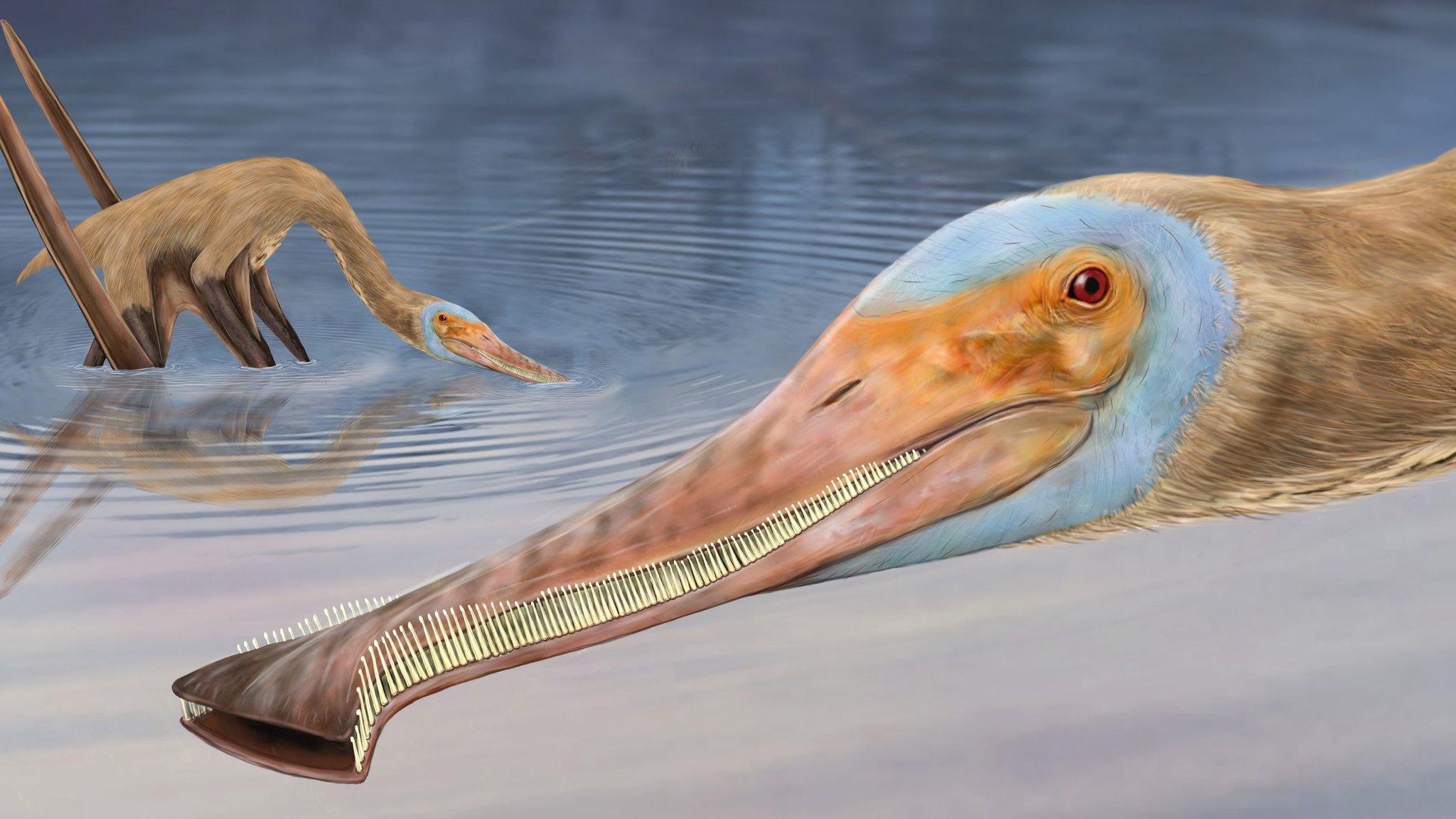Devon fossils show reptile may have starved to death, researchers say
- Published

Research indicates the rhynchosaurs may have starved to death as it got older
A sheep-sized prehistoric animal that ate tough plants and trees could have lost its teeth because of its diet, new research suggests.
University of Bristol researchers studied specimens found in Devon to determine that the rhynchosaurs may have starved to death in old age.
The reptile, a herbivore, roamed the earth between 225 and 250 million years ago during the Triassic Period.
It was a period of generally warm climates and tough plants.
The researchers used scans to see how the teeth wore down as they fed and how new teeth were added as the animals grew in size.
Prof Mike Benton, team leader on the study, said he was "amazed" to find that in many cases the animals "dominated their ecosystems".
"They were the sheep or antelopes of their day, and yet they had specialised dental systems that were apparently adapted for dealing with masses of tough plant food," he said.
'Rare'
Dr Rob Coram, who discovered the Devon fossils, said the research showed the animals may have struggled to get enough nutrition after their teeth were eventually worn down.
"The fossils are rare, but occasionally individuals were entombed during river floods," he said.
"This has made it possible to put together a series of jaw bones of rhynchosaurs that ranged in age from quite young, maybe even babies, through adults, and including one particularly old animal, a Triassic old-timer whose teeth had worn right down and probably struggled to get enough nutrition each day."
Thitiwoot Sethapanichsakul, who also studied the bones, said new teeth and new bone came into wear as the animal got older.
"They were clearly eating really tough food such as ferns that wore the teeth and bone down to the bone of the jaw, meaning that they were basically chopping their meals by a mix of teeth and bone," he said.
'Starved to death'
However, Dr Coram said the research indicated that eventually the arrival of new teeth slowed down and the worn area "got deeper and deeper".
"It's like elephants today - they have a fixed number of teeth that come into use from the back, and after the age of 70 or so they're on their last tooth, and then that's that," he said
"We don't think the rhynchosaurs lived that long, but their plant food was so testing that their jaws simply wore out and presumably they eventually starved to death."
Researchers compared examples of earlier rhynchosaurs, such as those from Devon, with later-occurring examples from Scotland and Argentina.
They were able to show how their unique teeth enabled them to diversify twice, in the Middle and then in the Late Triassic.
But in the end, climate change, and especially changes of available plants, seem to have enabled the dinosaurs to take over as the rhynchosaurs died out.
The findings are published in the Palaeontology journal.

Follow BBC News South West on Twitter, external, Facebook, external and Instagram, external. Send your story ideas to spotlight@bbc.co.uk
Related topics
- Published18 April 2023

- Published22 March 2023

- Published28 February 2023
